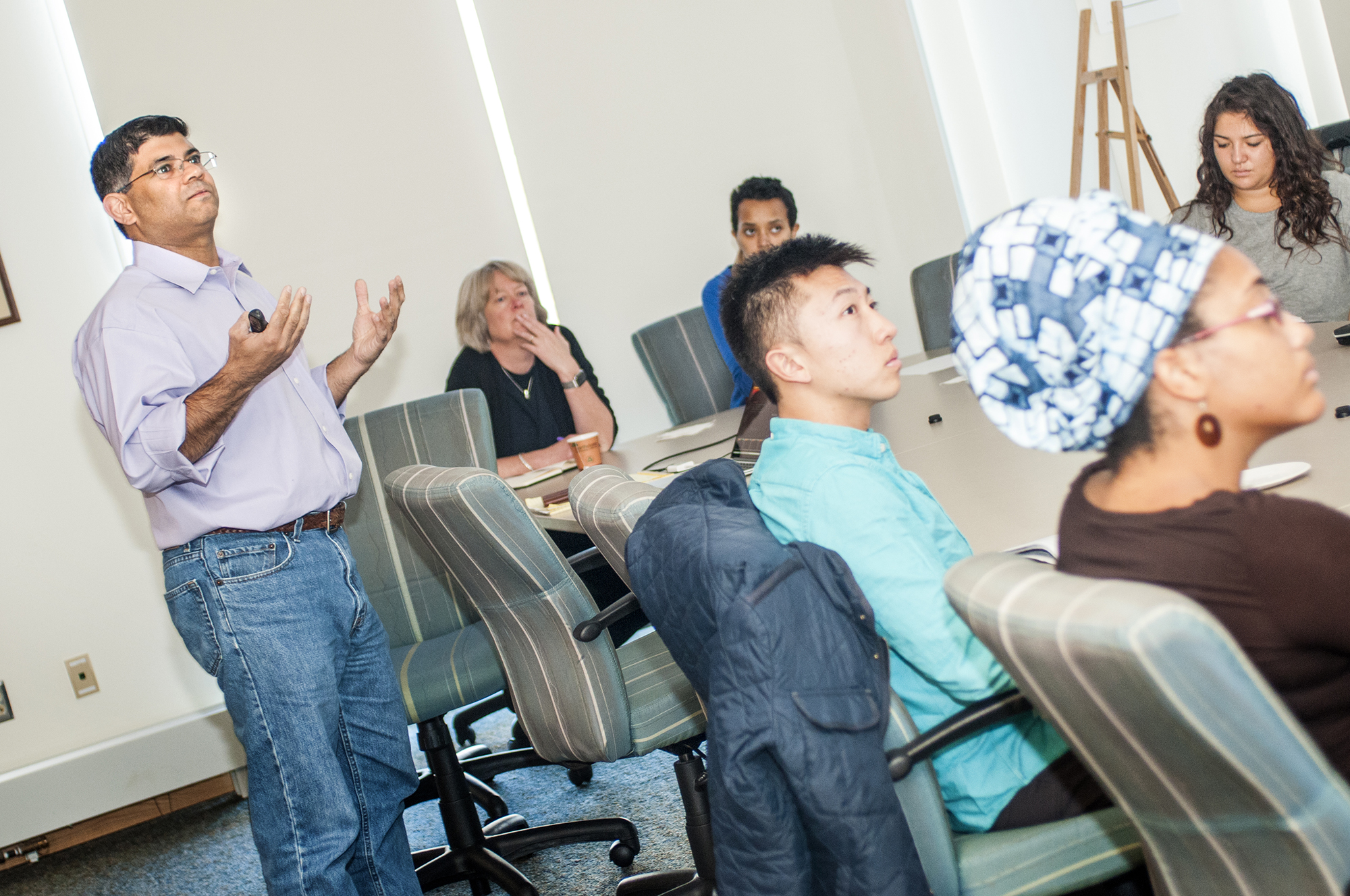
Cyrus Boga ’90, an expert in social entrepreneurship, recently returned to the Hill as a Levitt Center Innovator-in-Residence to hold workshops and meet with students. Boga is the CEO and founder of Novamaya, an education startup serving college students, and the CEO of Campus Properties LLC, a venture offering student housing solutions. He also has experience in investment banking, corporate finance and running a successful social enterprise.
Boga’s expertise ideally situates him to provide advice to Hamilton students hoping to develop their own social ventures. During his stay on the Hill, he met with students one-on-one to discuss their ideas, held lunch meetings, and facilitated four workshops dedicated to helping students develop the skills and knowledge necessary to being successful social innovators.
Boga’s first workshop, “Key Learnings for Social Entrepreneurs,” aimed to provide participants with an overview of key skills necessary for success in social entrepreneurship.
During the two-hour workshop, Boga helped participants understand the different aspects of social entrepreneurship, the challenges associated with it, and the key skills that make a social entrepreneur successful, such as disruptive thinking, an entrepreneurial mindset, managing change, and building capital.
In addition to teaching core components of social entrepreneurship, this first workshop served as a jumping-off point for Boga’s three later workshops.
The second workshop hosted by Boga placed the skills of a social entrepreneur into a real-world context. Titled “Learnings from a social enterprise: the case of Poseidon Partners,” the workshop centered on the case of a successful social venture Boga himself ran. Boga used this case study to illustrate the goals, opportunities, and challenges in managing a social entrepreneurship venture.
In another workshop, Boga countered the conception of the financial sector as mutually exclusive with social good. Instead, he argued, it is necessary for social innovators to understand the financial system and their own financial targets in order to successfully sustain any project. Drawing on his expertise from his time as a financial analyst, Boga discussed the significance of financial modelling, the importance of valuation for companies, and the influence of investment banks on policy making.
By the end of the workshop, he had explained to participants how to leverage the financial system in their projects rather than being passively affected by it.
Boga’s final workshop looked to the emerging future. Titled ““New Frontiers in Social Entrepreneurship: Opportunities and Challenges,” the workshop focused on the outlook for social entrepreneurship today. Participants discussed how the latest theories from the physical and social sciences are contributing to a new paradigm and how social entrepreneurship can capitalize on these emerging ideas.
Boga led a brainstorming session about how to combat current social issues in the most effective way possible, encouraging participants to ask all the necessary questions and develop holistic, promising models.
Hamilton students found their time with Boga to be informative and inspiring. Florence Turiaf ’17, who attended multiple workshops, commented, “The workshops based on his expertise in social entrepreneurship were a perfect balance of real life lessons from firsthand experience and of brainstorming for future projects."
Boga, for his part, was impressed by Hamilton students. He reflected, “It was wonderful to interact with Hamilton students who were clearly well-informed and enthusiastic, brimming with great ideas, and really interested in making a difference. “ After their collaboration with Boga, these driven students are likely one step closer to making that difference.
Posted November 16, 2015
